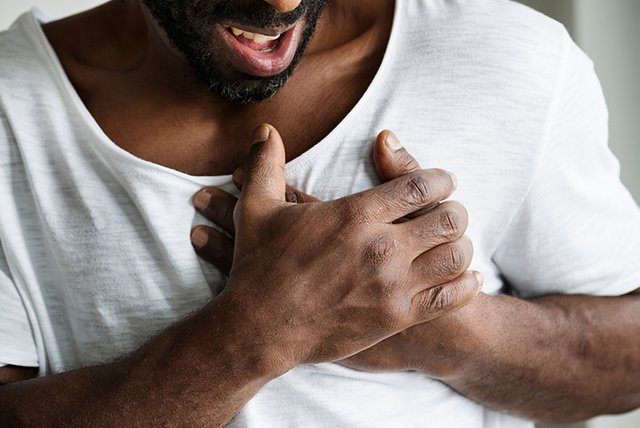10 Possible Causes of Chest Pain to Watch For

Your imagination may leap to the worst-case scenario when you experience an unexpected ache or discomfort in your chest: a heart attack. But while heart attacks are life-threatening, other medical reasons for chest discomfort are less dangerous than a heart attack.
Below are 10 possible causes of chest pain except for heart attack.
1. GERD
GERD is a widespread digestive issue. It occurs when the contents of the stomach flow back into the throat and irritate the lining of your esophagus. It might cause various symptoms like a foul taste in the mouth and a burning sensation in the chest that is similar to chest pain. While occasional GERD isn’t harmful, chronic heartburn can damage your esophagus significantly and lead to serious health problems.
2. Hiatal hernia
Hiatal hernia is a condition when a portion of the stomach pushes up into the chest. This type of hernia is fairly common and often goes unnoticed. But if the top of the stomach presses towards the lower area of the chest, it can create GERD symptoms like heartburn and chest discomfort after eating.
3. Muscle strain
Persistent chest pain can be caused by inflammation of the muscles and tendons around the ribs. If the discomfort worsens with activity, it might be a sign of a muscular strain. The discomfort usually improves over time but if it lasts longer than a week and worsens the quality of your life, it might be beneficial to visit the doctor.
4. Pulmonary embolism
Pulmonary embolism occurs when a blood clot becomes stuck in an artery that supplies blood to the lungs. It might cause chest discomfort, breathing difficulties, and blood in the cough. If not treated promptly, pulmonary embolisms can be fatal. For this reason, it’s crucial to seek medical help as soon as possible.
5. Hypertrophic cardiomyopathy
Hypertrophic cardiomyopathy occurs when the heart becomes overly thick. Because the thickening of the heart prevents blood from flowing freely from the heart, the muscle must work extremely hard to pump blood. The symptoms of hypertrophic cardiomyopathy include chest discomfort, shortness of breath, dizziness, lightheadedness, and fainting. Untreated hypertrophic cardiomyopathy can result in serious health problems, make sure to visit the best cardiologist.
6. Peptic ulcers
Peptic ulcers are open sores that develop on the inside lining of your stomach and the upper region of your small intestine. Stomach discomfort is the most prevalent sign of a peptic ulcer. But it can often produce other symptoms like chest discomfort, nausea, and bloating. Taking antacids, which are available to purchase online and in pharmacies, can usually relieve pain caused by peptic ulcers.
7. Pneumonia
Pneumonia is a lung infection that causes the air sacs in one or both lungs to become inflamed. Cough with phlegm or pus, fever, chills, and trouble breathing can occur when the air sacs fill with fluid or pus. Besides, pneumonia often causes chest pain when coughing or breathing. Because untreated pneumonia can be fatal, it's important to see a doctor.
8. Asthma
Asthma is a common lung disease that causes inflammation of the airways. It can produce intense discomfort in the chest. Shortness of breath, coughing, and wheezing are some of the other symptoms of asthma.
9. Ribs injury
Chest discomfort can be caused by rib injuries such as bruising, breaks, and fractures. If you have a fractured rib, you may have heard a snap or felt excruciating agony at the time of the accident. If you suspect you have a rib fracture, visit a doctor because a broken rib can damage the other organs.
10. Collapsed lung
A lung might collapse when air builds up in the area between the lungs and the ribs, producing acute chest discomfort during breathing. Shortness of breath, fatigue and a fast pulse rate are all symptoms of a collapsed lung.